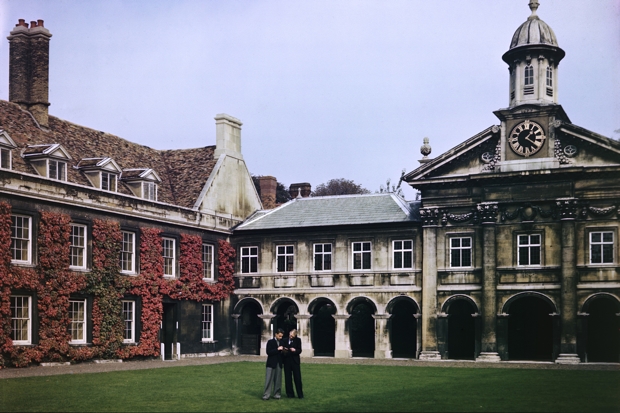Charles Palliser’s debut novel The Quincunx appeared as far back as 1989. Lavish and labyrinthine, this shifted nigh on a million copies, while more or less inaugurating the genre of ‘neo-Victorian literature’, whose ornaments are still clogging up the bookshop shelves a quarter of a century later. There have been three other novels since, at least one of them set in the here- and-now, but Palliser’s fifth outing straightaway returns us to the world of creaking lawsuits, high-grade subterfuge and lickerish kitchen-maids in which he made his reputation.
In fact the territory occupied by Rustication is so familiar as to make the case-hardened reader of A.S. Byatt, Sarah Waters and Michel Faber (the last two referenced in the blurb) wonder whether he or she hasn’t travelled this way too often for comfort. It is December 1863, dark, dank and ominous, and to a decayed and apparently haunted house in the Kentish marshlands journeys 17-year-old Richard Shenstone, lately sent down from Cambridge for smoking opium and being involved, in some as yet unexplained way, in the suicide of a similarly intoxicated friend.
If Shenstone, whose self-absorbed diary takes up the greater part of the narrative, is careful not to reveal too many of the circumstances that have brought him back to Kent in disgrace, then the half-dozen mysteries awaiting his inexpert eye are no less tantalising. To the pressing question of his career (disapproving Uncle Thomas has offered him a ticket to the colonies) can be added the strange behaviour of his pinched and ailing mother, the question of his sister Euphemia’s love life and its possible consequences, and the chill silence that hangs over his father’s recent death. Solace is provided by Betsy, the teenage maidservant, who permits late-night visits to her garret.
Looming above these domestic cares, and at the same time setting each of them in sharp relief, is the series of obscene and anonymous letters currently plaguing the district, whose authorship Shenstone sets out to expose. Betsy, being illiterate, is soon freed of suspicion. Miss Bittlestone, a genteely impoverished hanger-on at the local rectory, and enigmatic Mrs Paytress and her conniving footman go the same way. But by the time Richard has convinced himself that the most plausible candidates are Euphemia and her accomplice Willoughby, bastard son and potential heir of the local earl, the net has begun to close in on the diarist himself.
To chart the precise course taken by Rustication’s complex plot would require a small gazetteer. Red herrings naturally abound, together with a just-about-fashionable post-modern treatment which supposedly reproduces a document obtained from the ‘County Records Office’ at the fictitious town of ‘Thurchester’. In less accomplished hands all this would be the tiniest bit tiresome, but Palliser’s hold on his narrative is enough to turn it into an exercise in pure form. As in a superior detective novel, character, scene and incidental detail fade away and all that remains is the thrill of the chase: a pursuit so resolutely maintained that even the ultimate lack of resolution seems not to matter.






Comments